Book II, Chapter 19: Apollo Lycegenes
List of Chapters | Previous Chapter
The woodfire burning inside the stable had already flushed out a nest of mice. They scurried out of the building and into the stubbled field adjacent to the Eltzbachers’ property. Benedikt untethered Wellington and walked him in a circuit around the snowy yard. He did this because the smoke billowing out of the gaps between the boards were wafting toward the hitching post.
Hermann paused in his reading to observe the ostler at work. On meeting him, he had despised Benedikt, but the man had turned out to be a true friend. The narrative that he had prepared drew into sharp focus many stray and opaque aspects of Hermann’s past that had long troubled him. He still had questions, but there would be time for these later. He must finish reading so that the two of them could commit the manuscript to the flames.
History of the Werewolf of Mariahilf am Inn (concluded)
Frater Melchior’s thirty-day retreat on the slopes of Kahlenberg had been interrupted by an imperial summons. He was alone in the gilt-trimmed carriage that was conveying him to Schönbrunn Palace. There is much weighing on my mind, he thought, chewing his knuckles. What do they want from me? A fountain? A garden folly? A new glass roof for the orangery? Or does Her Majesty fancy yet another fucking sundial in the hedge maze?
A footman led him to a gilt-trimmed chamber decorated with a profusion of unimaginative marble statues representing coy nymphs and laughing putti. These and many other objects of virtù were arranged against a backdrop of blue Venetian wallpaper. Vienna’s Archbishop chatted amiably with a man in a white peruke whom Melchior immediately recognized.
The footman clicked his heels together and spoke: “Euer Gnaden (Your Grace) Prince-Archbishop Christoph Bartholomäus Anton Migazzi and Euer Hochwohlgeboren (Your Well High-Born) Baron Gerard Van Swieten, court physician, imperial librarian and most trusted advisor to Her Majesty Empress Maria Theresa von Habsburg; I present to you Herr Frater Melchior von Mariahilf am Inn, court artist and architect.”
Van Sweiten stepped forward, addressing Melchior in a voice tinged with the lilt of the Low Countries. “Frater Melchior, I’ve heard great things about you and your work. I believe we have ensamples of these on the palace grounds?”
He glanced at the Archbishop for confirmation.
“Almost certainly, I should think,” Migazzi replied.
“I am flattered, Hochwohlgeboren,” Melchior said. I sat with him for an hour, sketching that double chin in profile for a seal. But he doesn’t recognize me.
The imperial physician’s demeanor melted instantly into an expression of grave concern. He scanned the carpet as if reading from it what his lips were uttering. “I’m sure you are wondering why you are here. Her Imperial Majesty has recently acquired the Bamberg estates in the Duchy of Carinthia, to include the city of Wolfsberg in the Lavanttal Alps.”
The Archbishop interposed. “There is a village in the foothills nearby that remains outside the pale of Christendom; and has been so for hundreds of years.”
“Unwashed mountain folk,” Van Swieten observed. “Votaries of a werewolf god: Apollo Lycegenes (Apollo the Wolf-Born).”
“Lycegenes. . . ” The Archbishop smiled. “Doubtless a Latin corruption of Lux—an epithet of Apollo ‘the Light Born’.”
“Yes,” Van Swieten commented. “But they think it derives from the Greek Lykos (wolf).
“A wayward and superstitious people,” the Archbishop sighed.
Van Swieten contemplated the jeweled crucifix pinned to the cardinal’s scarlet cape. “Superstition assumes a bewildering array of guises.”
“Your Grace and Your Hochwohlgeboren,” Melchior said, bowing low. “I am still at a loss as to why I am here.”
“To put it simply,” Van Swieten said, “I am leading an expedition to the Lavantthal to demonstrate to this community that their misguided beliefs have no basis in reason, and that their savage practices must desist. They must conform to the ethical and moral standards of the rest of the civilized world. I want you to come along as my advisor, and to provide spiritual guidance for the troops accompanying us. The Empire is witnessing a steady influx of foreigners and undesirables from Her Majesty’s dominions in Hungary, Silesia, the Serbian March, the Balkans—.”
“Bohemia.” the Archbishop added.
“From the four corners of the world!” Van Swieten threw his arms in amusement. “Fortune tellers and gibbering soothsayers are enchanting in the fairs and marketplace. But illiterates such as these must be kept in check. Their retrograde views cannot be allowed to preponderate so as to affect the masses. There is a boil on the ass of Carinthia, and I intend to lance it. I am a physician, after all. Now, if you will both excuse me, I have an engagement with Her Majesty.” He nodded curtly and withdrew.
When the footman had closed the door, Melchior turned to the Archbishop.
“Your Grace,” he said contumaciously, “I am not a barracks chaplain.”
“I understand your dismay, Frater Melchior. But I must confide to you that your Order’s position at court has become tenuous of late. The Baron is urging Her Majesty to expel all of her Jesuit confessors from the palace.”
“It’s all so peculiar,” Melchior muttered. But it was not the conspiracies of the Habsburg court tormenting him. It was the cult itself. He knew of Van Swieten’s previous commission to Moravia, which had culminated in his treatise Abhandlung des Daseyns der Gespenster (Discourse on the Existence of Phantoms). The work surveyed popular beliefs concerning vampires and werewolves, and discounted these as barbarisms of ignorance.
The Archbishop interrupted Melchior’s ruminations. “There is another matter I wish to raise.” He seemed crestfallen. “As Virgil says: Fama, malum qua non aliud velocius ullum (Rumor, than whom no evil is swifter). There have been reports . . . I do not credit these. But there are some who fear, Frater Melchior, that you have not only strayed from the fold but stumbled along the way. This journey to Carinthia will help assuage those concerns.”
Melchior lowered his eyes until they fell on the Archbishop’s crucifix. Suddenly his vision became blurry.
“Are you well, my son?” Migazzi asked. “Your eyes are bleeding.”
“Please excuse me, Your Grace.”
Frater Melchior broke protocol by turning his back on the Archbishop. Covering his eyes with one hand, he exited the room; and the footman closed the door.
It took them two days to travel by coach from Vienna to the Styrian capital of Graz. There they rendezvoused with the jäger (infantry) company that was to escort them across the border into the Duchy of Carinthia.
When they arrived in Wolfsberg, Van Swieten wasted no time in summoning the Bürgermeister, an elderly Bavarian who had served in various capacities under the Bamberg dynasty for over half a century. Despite his wooden leg he moved spryly by the aid of a crutch, with which he beat oversolicitous subordinates who presumed to help him.
The grizzled man accompanied Baron Van Swieten and Frater Melchior into the dungeon beneath the castle, where a prisoner from the village was being kept in a dank cell. The three waited at the reinforced door for the warder to answer the bell and let them in.
“The prisoner thinks he’s a werewolf,” the Bürgermeister said. “And his people think so too.”
“His people?” Van Swieten enquired, holding a lantern for the three of them.
“Yes. He’s their Bürgermeister. Like me! But fortunately, I’m not quite so mad.” He bared his teeth and growled, which he thought was so hilarious that tears sprang to his eyes.
Van Swieten looked down at the man reprovingly, as the gate swung open. The warden conducted them inside; and they heard a man violently shouting obscenities even before they reached the large vaulted cell at the end of the corridor.
There was a man chained to the wall by the ankles; but his arms and hands were unfettered. The straw he stood on stank of shit and urine. Van Swieten pressed a nosegay to his nostrils. The guards had prodded the prisoner awake with staves; and, in a fury, the man had wrenched one of these from his tormentor and was using it to attack them both.
But when the man saw the shadows of the newcomers spread across the dank walls, he cast the staff aside, and turned to face them. Everything about him was off: his unusual height and those elongated teeth. The groin of his trousers were ripped open and his massive member hung out of the aperture in the fabric. A purple flap of flesh extended along the length of the phallus, like the ridged spine of a lizard. He stared at the crucifix hanging from Frater Melchior’s neck. Then he smiled and pointed to his eyes, the whites of which were now suffused with blood. “You and I have the same problem, Frater,” he said.
Melchior exhaled. How does he know I can no longer look at the very crucifix that I am obliged to wear.
Van Swieten addressed the man. “How long have your people labored under their gross superstitions and clung to this mystery cult of theirs?”
The man repeated what the Baron had said, mimicking his voice, accent, and intonation unerringly. The effect so disturbed the Bürgermeister that he limped out of the room, whispering to Melchior that he would wait outside in the coach.
The prisoner kept his eyes on the Jesuit, as he gestured to the walls of his cell. “You’re going to be in a similar predicament quite soon.” He turned his sharp eyes to Van Swieten and spat on the floor. “They’ll avenge me.”
“Who will?” the Baron asked.
“My wives,” he replied, counting to seven in Latin. “They’ll avenge me when I am gone.” His eyes fell again on Melchior. His expression was one of infinite compassion, though his voice was laced with malice. “Little boy, little boy, remember what I tell you. . .”
(When Hermann read this his knees grew weak and he nearly fainted.)
At once the madman’s lips began to foam. His limbs cracked, as his knees and elbows reversed their hinges. Although it might have been an effect of the light, it seemed to Melchior as if the man’s jaws had elongated. The two guards cried out and backed away as the prisoner fell twitching to the floor. The warden bent down, and pronounced the man dead.
At once, Van Swieten stormed out of the cell. Melchior took a final hard look at the corpse before running after him. They emerged from the tunnel and saw the crippled Bürgermeister waiting for them in the coach.
“The prisoner is dead,” Van Swieten said. “I want you to summon the city’s surgeons—and a draftsman. I intend to anatomize the corpse. Travesties of nature such as these are rare but not unheard of. When I have concluded my investigation, I want him boiled down and his bones sent to Vienna to be preserved for posterity.”
The Bürgermeister wiped his mouth. “As you wish, Hochwohlgeboren.”
“How far is the village from here?” the Baron asked.
“No more than two hours by foot in that direction.” He pointed northwest toward the mountains. “But the terrain is far too rugged for the horses. The municipal authorities in Wolfsberg will ensure that all of your mounts are stabled and provided for; and that the equipage that your soldiers cannot carry with them is warehoused.”
Van Swieten contemplated the rugged horizon. “Frater Melchior, you and Hauptmann (Captain) Christoph shall take the soldiers to the village today. I will join you tomorrow when I have concluded the autopsy.”
The Bürgermeister reached in his pocket for his snuff box. “Both of you shall be accompanied by a small detachment of local mountaineers and rangers who will serve as guides. When I received your correspondence, I immediately dispatched a priest to the village. He is waiting for you there.”
“What is his name?” Van Swieten enquired.
The Bürgermeister grimaced. “Hochwürdig (Reverend) Lukas.”
Melchior could tell there was something about Reverend Lukas the Bürgermeister found distasteful.
It took the infantry company much longer to make the journey to the village due to a light drizzle that made the rocks slicker than usual. When they arrived the soldiers fanned out and set up camp in a broad field located just south of the village gate. A flabby moon-faced priest stepped out of a shack at the edge of town. The rickety door was hung with wooden crosses, which clacked when it opened and closed. The priest trudged through the ankle-high grass and mountain heather, and bowed when he reached Melchior.
“Your Grace,” he said.
Melchior’s jaws hardened. “You mock me by addressing me in so exalted a manner.”
“Sorry,” Reverend Lukas said, removing his wig because the damp air was making the powder was run down his cheeks. “I’m not used to being around important people.”
“You shall address me as Frater Melchior.”
“And you shall address me however Your Grace wishes,” the priest retorted with a condescending grin. “But I am called Lukas, if that matters.”
Melchior’s attention was drawn to the tree-line where seven she-wolves watched him from the undergrowth. It occurred to him that, until that moment, he had never seen a wolf in the flesh. While growing up in the Tyrol he could hear them growling and howling in the night; but he had only ever seen them in woodcuts and nightmares.
“Lots of wolves round here,” Reverend Lukas remarked. “The villagers feed them and keep them in their huts.”
Melchior looked at the priest.
“Like hunting dogs, you know?”
The she-wolves sprang from the folliage and loped through the encampment with their tails between their legs. Some of the soldiers unshouldered their rifles or drew their sabers. But the wolves ignored them and continued into the village.
Melchior pointed to the shack the priest had walked out of. “Is that their church?”
“They don’t have a church here.”
“Then where do they worship?”
“Beyond the village are the remains of a Roman fort. It was constructed around the mouth of a cave that is now the habitation of seven . . . weird women. The villagers perform their weddings, obsequies and other rites there.”
“Why do you not excoriate them for participating in such abominations?”
“I am one man. And they do not want me here. But they dare not kill me.”
“Of course not,” Melchior said, emboldened by the presence of 140 Austrian regulars. “That would be the end of their village.”
“I don’t think they really care about that. They’ve been expecting you.”
“Baron Van Swieten will be here tomorrow.”
“That’s not what I meant,” Reverend Lukas said, grinning wryly at Melchior. “They’ve been expecting you.”
A wolf’s cry rose up in the village, and Melchior glanced behind him. Half a dozen villagers stood at the wicket gate scrutinizing him. A little girl hugged a doll to her breast, the head of which was woven out of straw to look like a wolf’s.
Van Swieten did not arrive in the camp until twilight the following day. Reverend Lukas informed the villagers that the Baron wished to speak to them. A gathering was held in the central thoroughfare in front of the tanner’s open-air workshop. Perched on a rise at the far side of the hamlet was a granary, beneath which was a scrabbly path leading up to the fort.
The tanner, who was the oldest man in the village—and de facto leader following the death of the mad Bürgermeister—sat inside his workshop amidst the hook-hung hides, smoking a long-stemmed pipe. He refused to stand or show any deference toward Van Swieten when he appeared.
Captain Christoph ordered ten soldiers to take up positions around the Baron; but they were told not to draw their weapons. Van Swieten was informed that the women in the cave were not present, but he replied that their attendance was unnecessary. Melchior noticed that some of the villagers’ eyes reflected the flickering light of the torches that had been lit for the occasion—like the eyes of the wolves that were now skulking about the dilapidated structures on either side of the pebbled way.
The speech the Baron delivered devolved into a disquisition on the irrationality of popular religion. He made light charlatans who claimed to draw down the influences of the moon, predict the future, or manipulate infernal and sublunary forces. After an hour of speaking he finally got to the point:
“In sum, Her Majesty Empress Maria Theresa has sent me here as ambassador plenipotentiary to inform you that your people’s rites are hereby outlawed and proscribed. Missionaries from Melk Abbey will arrive within the month to establish your first church. Reverend Lukas shall stay on as your shepherd.”
The tanner hissed. The villagers (including the children) did the same. A toddler held up his fist. Even the wolves seemed moved and grumbled as they licked their chops.
Van Swieten raised his hand to silence them. “You seem to labor under the false impression that this is a matter to be decided by acclamation. On the contrary, it is a fact. On the morrow Her Majesty’s troops shall enter the village and proceed to the ruined fort, which you have converted into a kind of sanctuary. They shall eradicate all vestiges of your former ways. I advise you not to oppose them.”
Van Swieten inclined his head to the captain to intimate that he was done and that the rabble should clear a way for him. The townsfolk grumblingly allowed the strangers to depart unmolested. As Melchior was leaving, he noticed that one of the leather hides stretched out on the workshop’s wall looked as if it had been cut from a man’s torso.
In the camp that night the watches were set. The soldiers clustered around the campfires in front of their tents, gossiping, smoking, and playing draughts. The damp air condensed into a thick fog which swallowed up into impenetrable obscurity the lower slopes of the Lavanttal.
Frater Melchior shared a tent with Captain Christoph, an upright Catholic, who asked the Jesuit if he would “please to hear” his confession.
“Go on, my son,” Melchior said.
The captain knelt on one knee. “I have confronted many horrors on the battlefield. But there is something about this place that chills my blood. A diabolical malevolency lurks in these mountains—an evil that cannot be vanquished by brute force. Is this cowardice? Will any good come of our mission here?”
“It is not cowardice,” Melchior replied; and, suspecting the officer to be ignorant of Latin, he paraphrased in German the words of Bishop Robert Grosseteste of Lincoln, who said in his commentary on Aristotle’s Nichomachean Ethics: “Evil deeds do not occur but that blessings spring from them.”
Relieved by this, the captain recited an Ave Maria (as imposed) and clasped his hands together in prayer. When he was done, he blew out the candle; and the two men were soon asleep in their cots.
But at dawn, a man’s strangled cry shattered the morning’s tranquility.
Melchior threw aside his woolen bedclothes, as Captain Christoph reached for his belt in which a brace of loaded pistols were holstered. The officer buckled this around his nightshirt, threw open the tent flap, and strode outside into the dewy grass barefooted.
Melchior donned his black robe but groaned when he saw that his fingernails had lengthened and become unbreakable in the night.
Startled awake by the sound, Reverend Lukas sprinted across the grass in his cassock, which he had torn in his haste.
The Baron emerged from his red-and-white pavilion, an ermine cape draped over his nightshirt. The honor guard from Wolfsberg formed a defensive square around him. “What is going on?” he asked.
Captain Christoph pointed in the direction of the long tent near the trees, which, aside from the Baron’s, was the largest in the camp and could accommodate an entire zug (quarter-company). So thick was the matutinal mist that no one could see with certainty what was going on; but it seemed to Melchior as if a pack of wolves dashed suddenly out of the tent—although one of these appeared to be running on two feet.
Captain Christoph fired his pistol; and a wolf yelped in the bushes.
The officer rapidly closed the distance between himself and the tent, and plunged inside; and Frater Melchior followed. On the ground and on the cots lay over two dozen dead soldiers. A hand clutched the hem of Melchior’s robe, and the Jesuit looked down to see a gory pulp where a man’s head had been. The hand slackened and fell away.
The brass whistles began to blow and a general alarm was raised.
Captain Christoph stormed out of the tent and confronted the Baron, refusing to address him by his honorific. “Everyone in that tent is dead! If the wolves did this, it was the villagers who set them upon us. The blood of my men cries out for justice!”
Baron Van Swieten mopped his brow as he stared at the red stains on the tent’s white canvas. “Spare the children,” he mumbled. “But not the women. They were party to this.”
Having received their orders, the soldiers kitted up for battle. Bayonets were fixed to the rifles, which were then re-shouldered. The remaining three züge (quarter-companies) marched in two files side-by-side toward the wicket gate with sabers drawn. Though he should have remained at the back, Captain Christoph led the charge. The soldiers split up and kicked in the doors of each hovel that they passed (on either side of the path).
Shrieks and lamentations rent the morning air. The children were torn from their mothers’ arms; and the women cut down indiscriminately along with the men—and frenzied wolves. Though the orders were not to kill the children, few distinctions were made between the adults and adolescents.
In the gravel in front of Captain Christoph he discovered the corpse of a man lying with a bullet hole in his side. Absently, the officer stroked the handle of the pistol that he had fired.
Initially, the soldiers had not used their rifles in order to preserve ammunition. But when two peasants fired bows and arrows from a rooftop, killing one soldier and wounding another, the company responded with grapeshot. But the assailants sprang from the rooftops; and, with about a dozen survivors (including women), abandoned their children and fled with the wolves up the winding path that led to the fort.
Baron Van Swieten beckoned Frater Melchior and Reverend Lukas to join him at his tent where he had been conferring with the mountaineers.
“Frater Melchior, the guides are taking me back to Wolfsberg. You will remain here until this nest of vipers has been liquidated. I order you to see that Her Majesty’s flag is planted in the fort once it has been reclaimed. Reverend Lukas, you shall take charge of the children. Lock them in the granary on the hill. Feed them from the troops’ rations and from the stores in the village. Lash them together and bring them with you to Wolfsberg tomorrow.”
The two holy men bowed as Baron Van Swieten disappeared into his tent to prepare for his journey back.
By the time Frater Melchior made it to the fort, the battle had come to a draw. To ensure his men were not surrounded or cut off from behind, Captain Christoph had ordered most of the company to remain in the village to clear the buildings and establish a defensive position. He took with him one zug; and the soldiers were now attempting to scale the rocky slope on which the rubbled fort stood.
From their superior position, the enemy rained down arrows and boulders, which thwarted the Austrians’ advance. The battle lasted through the day; and, as the sun began to sink in the west, two soldiers made headway and achieved the summit. One of them called down for the Habsburg ensign to be brought up to him. It was waved from the brink, and the man shouted down that the rebels had either been killed or had committed suicide. The wolves were dead as well.
Within moments Melchior and Captain Christoph stood on the weedy flagstones now strewn with villagers’ corpses. Opposite them was the mouth of the cave, which had an oblique overhang supported by two ashlar columns.
In its depths Melchior discerned a hazy light. The soldiers hesitated to go inside; and, even their resourceful commander seemed reluctant to proceed. Gray clouds suddenly rolled in overhead, and a ripple of thunder was heard. It was as if the forces of nature had been lying in wait on the other side of the mountain’s peak to launch the counter-assault.
“Will you come with me?” Captain Christoph asked Frater Melchior in a whisper, not wanting his subordinates to hear the terror in his voice.
“I shall go alone,” the Jesuit replied.
“Some of the villagers may be hiding in there, and could cut you down.”
“They won’t do that. They have been waiting for me.”
Captain Christoph seized Frater Melchior’s arm, and saw there was no longer a cross around the holy man’s neck. “You should take a lantern with you,” he said breathlessly.
The lightning quivered above them, and the first drops of rain began to fall.
“I can no longer see by the lantern’s radiance or the light of God,” Melchior said.
The officer released his grip in awe. Melchior bent beneath the overhand and entered the cave. As he ascended the acclivity, he realized that neither Captain Christoph nor the other soldiers had been able to see the unearthly glow before him, because the walls of the cave were bathed in the livid flames of Hellfire.
When he reached the top of the ascent, he heard chains rattling and saw seven robed women fettered and bound together, who moved swayingly in a circle. They whimpered in an access of carnal desire intermingled with the moans of ineffable suffering. The ghostly light fell on them from an aperture between the stalactites in the ceiling.
Melchior opened his mouth to scream; but, instead, his voice emitted a tortured vulpine howl, which was repeated and amplified by the gargantuan slavering maul of a hairless wolf that slowly descended from the hole above witches’ circle. The women threw back their hoods; and all of them had the face of his beloved Élise.
From that moment on, the soul of Frater Melchior von Mariahilf am Inn would no longer inhabit the vessel in which he had been born. The damned man’s spirit floated outside of himself and watched helplessly as the demon that now manipulated his undead limbs stumbled and staggered out of the cave. Outside the cave, he lifted his face and his eyes rolled into the back of his head as the rain lashed his gaping expressionless features.
Captain Christoph commanded the soldiers to enter the cave and kill anything they found within. Tremblingly, the men stepped inside with lanterns raised. At the top of the ascent, they discovered the bodies of seven women in robes who had been mauled to death. Their corpses were linked to one another by chains of iron. And in a shadowy recess of the cave stood an ancient life-size statue carved out of Parian marble to resemble a Roman centurion with the head of a wolf.
That night, Captain Christoph pulled the bedcovers over the catatonic priest who lay on the cot. “I am so sorry, Frater Melchior.” he said. He blew out the candle and settled down to sleep.
But again at dawn, the camp was roused by the sound of a man screaming. It was Reverend Lukas crying for help from the village granary at the top of the hill where the children were being sheltered.
In the half light, Captain Christoph saw that Frater Melchior was gone. Quickly, he dressed and exited the tent. He walked alongside his adjutant and six soldiers (two of whom bore lanterns), and passed through the wicket gate and rushed through the town.
When they had climbed the rocky steps that led up to the granary, they found Reverend Lukas curled up on the ground, shaking uncontrollably.
“What has happened?!” the Captain Christoph demanded.
The priest could not speak, but flung one arm in the direction of the granary’s entrance. The lantern bearers entered first and the others followed. A man fainted straight away at the threshold, as the captain stepped in and covered his mouth. The flickering dim lanterns disclosed a horrid scene.
The bones of the children lay heaped around the cannibal in the bloody cassock. The monster was gnawing upon a tiny femur, which he held in his right hand. Frater Melchior turned his gaze on the astonished officer; and the candlelight danced in his eyes. He quoted in Latin those words of the Bishop Robert Grosseteste of Lincoln: “Mala enim non sunt facienda peccati, ut eveniant bona.—You don’t know what that means, do you?” he said, snarling at Captain Christoph, who gaped at him uncomprehendingly. “Within this context, it translates roughly to ‘lecker, lecker’ (yummy, yummy).”
A few days later, Frater Melchior stood chained in the dungeon beneath the castle of Wolfsberg, grinning coldly at Baron Van Swieten. On one side of the nobleman stood Reverend Lukas, and on the other was the crippled Bürgermeister.
“He must never be allowed to return to Vienna,” the Baron said. “In fact, I order you to expel him from the Empire. No one must ever learn what has transpired in the Duchy of Carinthia.”
Leaning heavily on his crutch, the Bürgermeister addressed Van Swieten with a leer. “Where do you propose we send him, Hochwohlgeboren?”
Van Swieten stared for a long time at Melchior. Then he turned to Reverend Lukas, and frowned. “Take him to your Pope in Rome.”

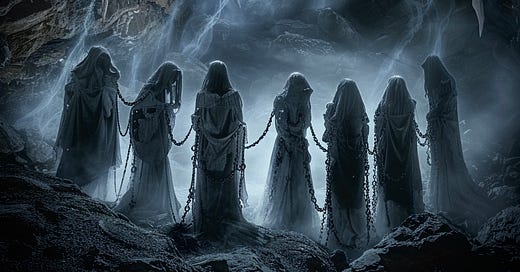



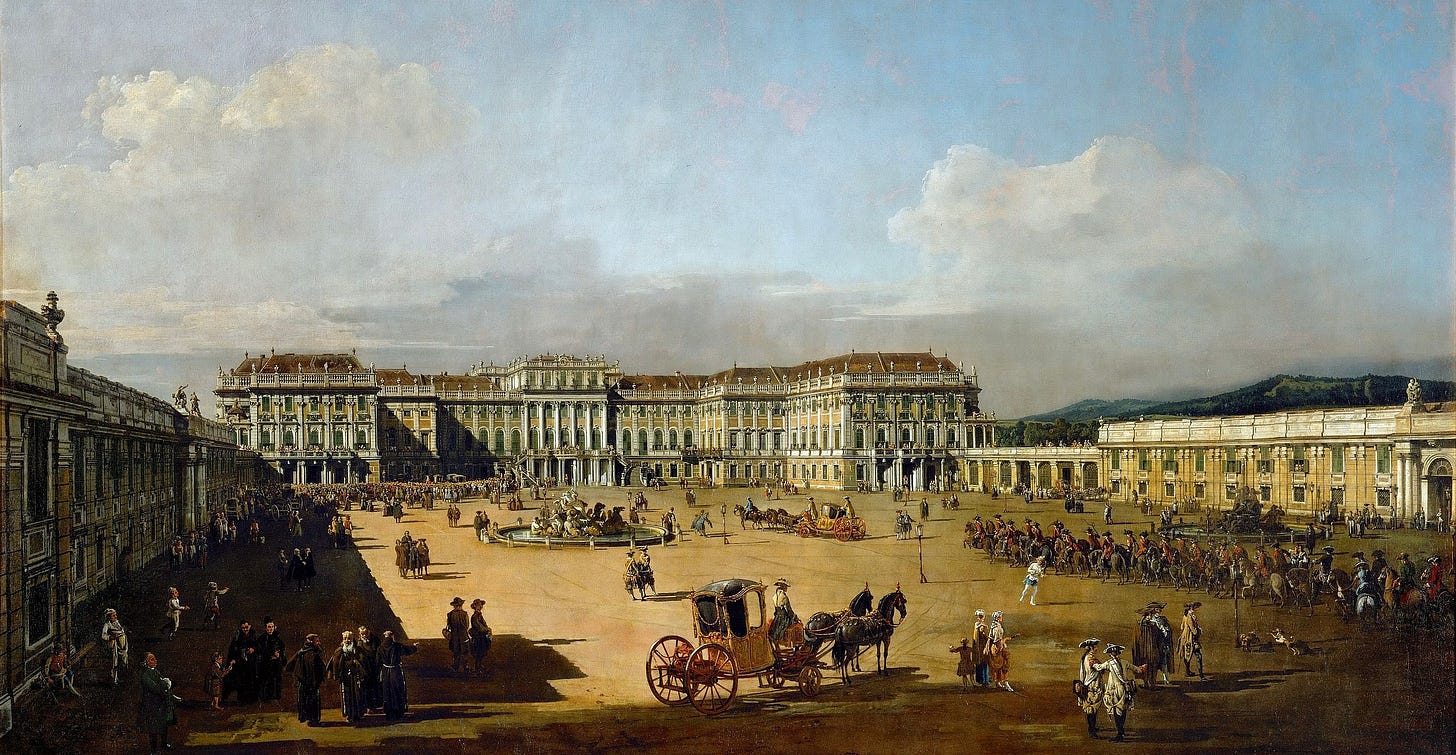

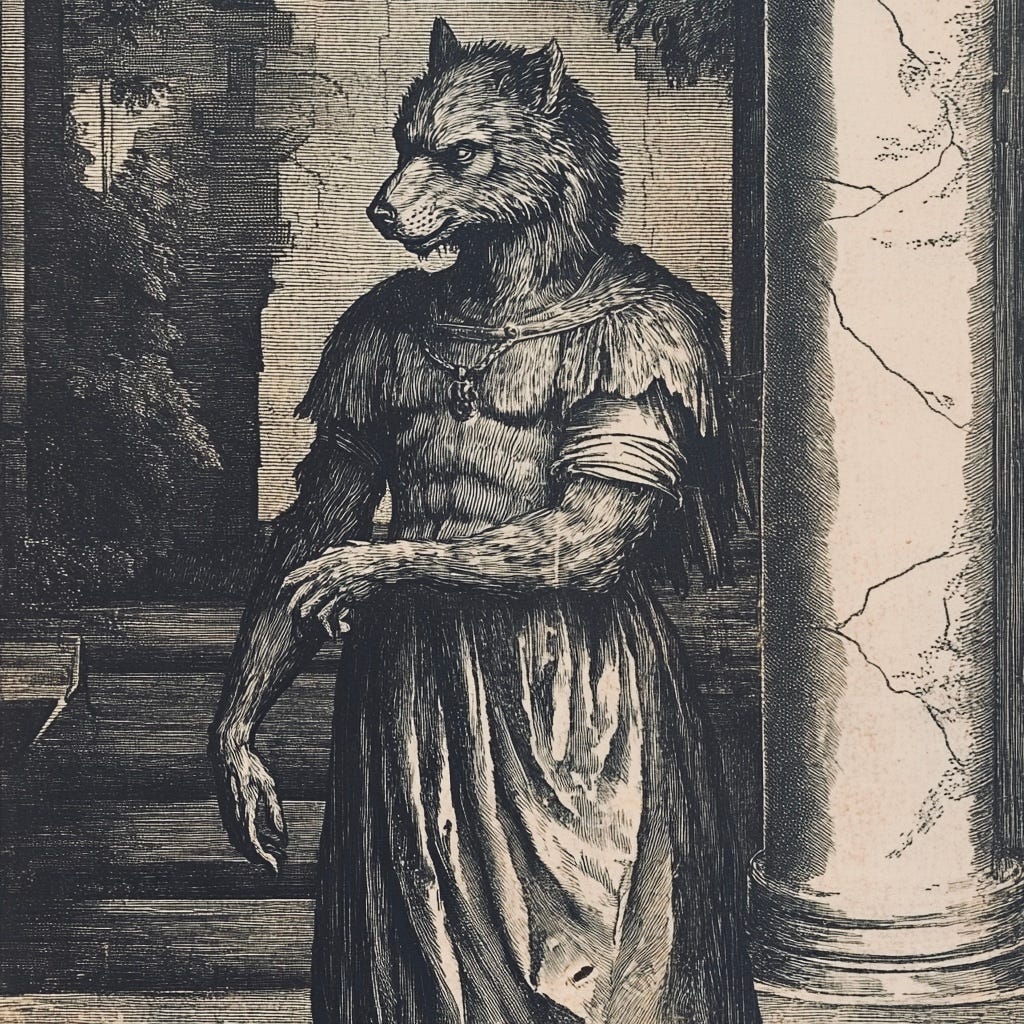


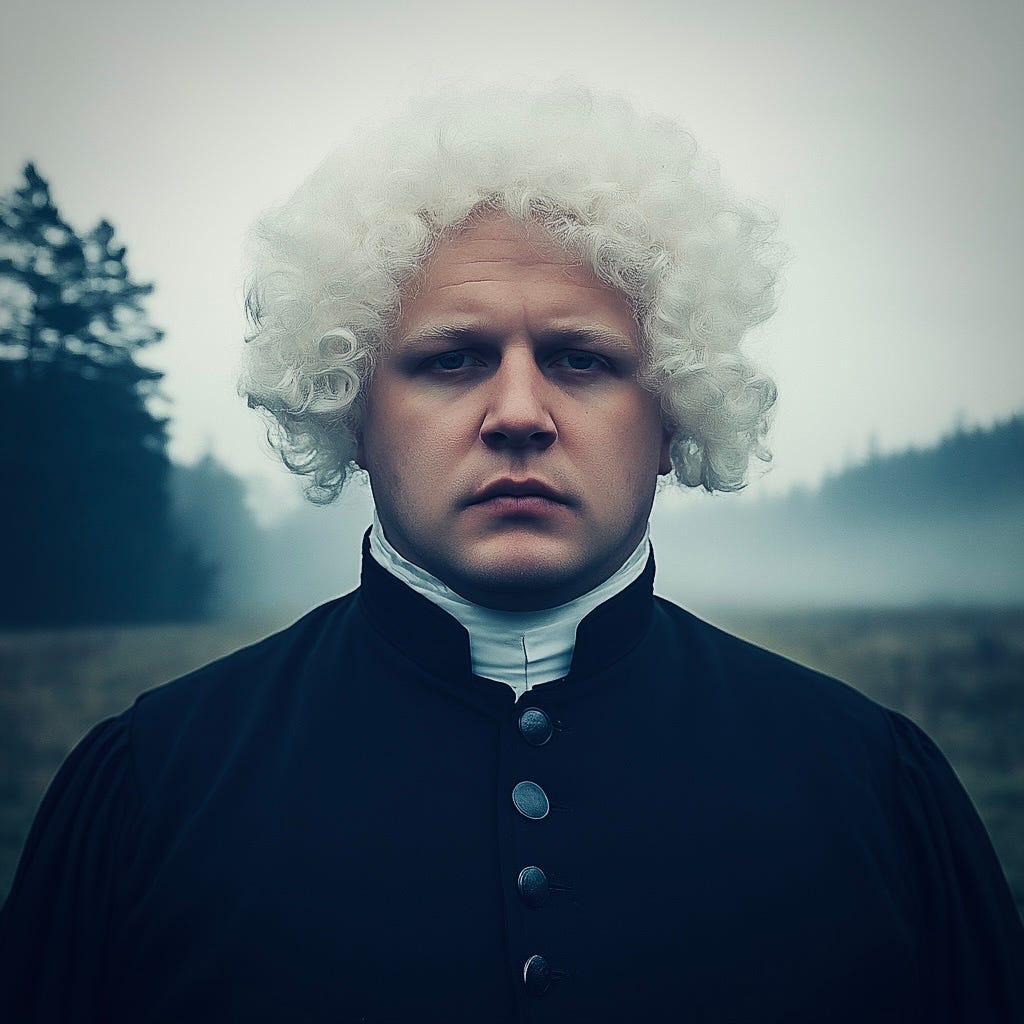


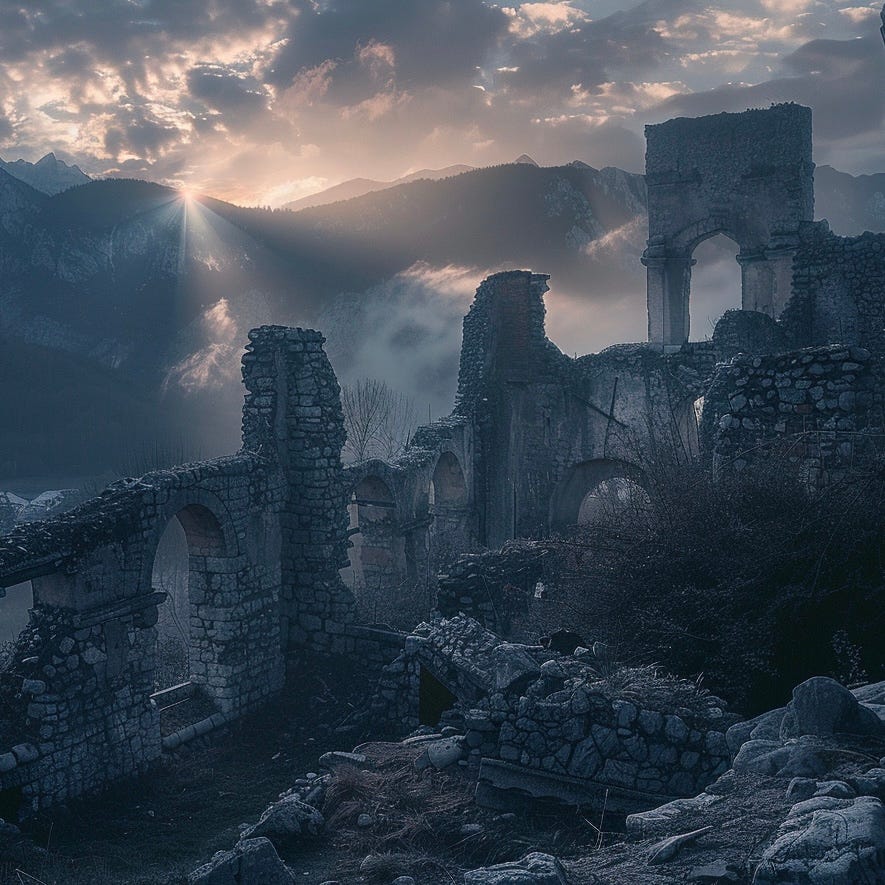

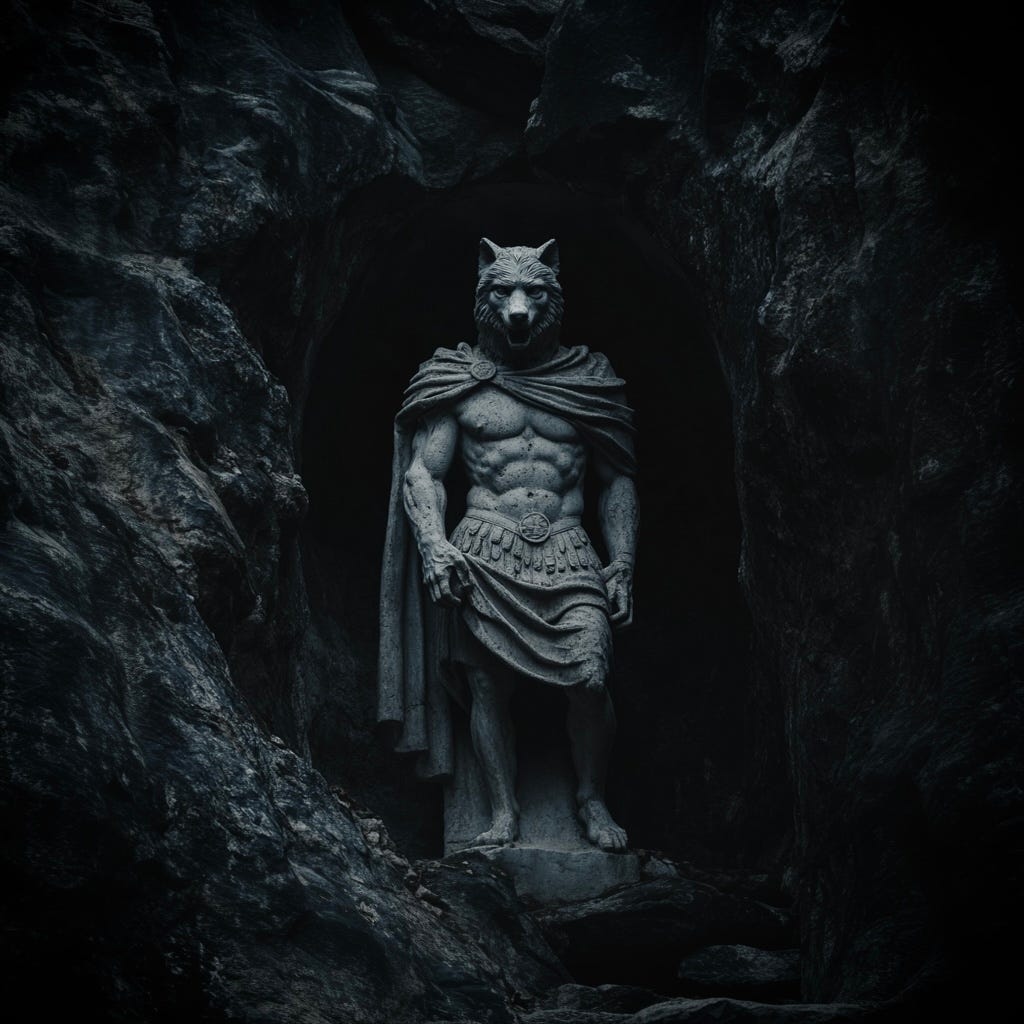
Read this one twice, Daniel. Really superb
I’m not wanting to cast any aspersions on what has gone before as everything in this story has been brilliantly done. However, the last 3-4 chapters have blown me away with the imagination and storytelling prowess on show. Outstanding writing 👍🏼
Catching up slowly, going back to to previous chapters and really enjoying this atmospheric tale. Reading this and the previous chapter while in Strasbourg gave it a little extra kick with gothic cathedral and surrounded by 14th century architecture! :)